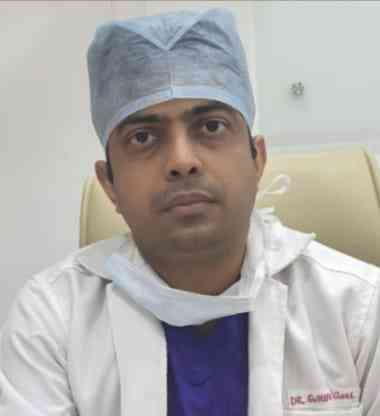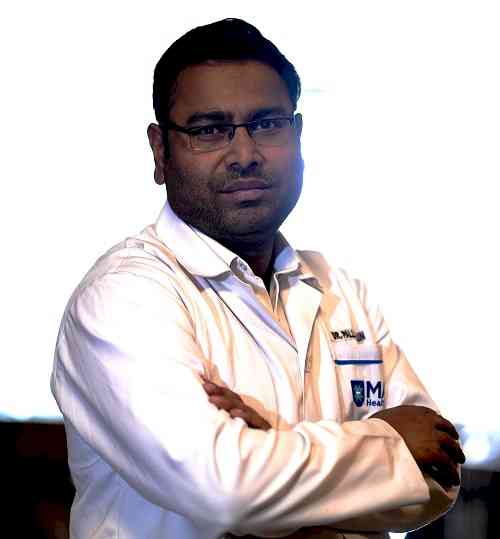Head and neck cancers- causes and management

Head and neck cancers in India are assuming alarming proportions. These cancers include ones affecting oral cavity, tonsils, nasal cavity, larynx, pharynx, hypopharynx and salivary glands. Oral cavity cancers are ones that affect buccal mucosa, lip, floor of mouth, anterior tongue, palate, alveolus and retromolar trigone area. As per Globocon 2020 India statistics, oral cavity cancers are the most common cancers in males, accounting for 1,35,929 new cases and 75,290 deaths every year. Every year around 7 lakh new cases of head and neck cancers are detected in India. Of all head and neck cancers, around 10 percent are related to oral cavity.
CAUSES AND RISK FACTORS
Such a high prevalence is considered to be a direct result of certain high-risk lifestyle which include tobacco, alcohol consumption, poor nutrition and dental factors (sharp tooth) and recently human papilloma virus (HPV) infection is also emerging as an important risk factor for head and neck cancers. Although the mode of transmission of HPV in head and neck cancer has not been determined, sexual behaviour has been associated with an increased risk
Tobacco smoking is well established as a dominant risk factor for head and neck cancers, and this risk is directly correlated with the intensity and duration of smoking habit. The cigarette contains carcinogens elements that have genotoxic effects and therefore may increase the risk of disease.
In the current context, by quitting cigarette smoking, limiting alcohol drinking, avoiding tobacco chewing, preventing exposure to second-hand tobacco smoke, environmental carcinogens, screening for HPV, maintaining good oral health, nutritional habits and managing stress could be good primary measures for preventing or delaying cancer development
Symptoms
Most common symptom that must alert user of these substances includes white or red patch in mouth, non-healing ulcer, altered taste, bad smell from mouth, difficulty in speech and swallowing, neck swelling, pain in the oral cavity, unexplained weight loss, blocked nose, nasal bleed, headache, hoarseness of voice, persistent cough, difficulty in breathing, jaw swelling, facial numbness, or drooping. Above symptoms must be taken as the first warning signal and in such cases immediate medical attention is the first prevention.
Diagnosis
To diagnose head and neck cancer it will require a good physical examination including endoscopies and supported with biopsy for confirmation of cancer and scans like X -ray, CT scans, MRI scans or PET scans as staging modalities.
Treatment
In recent years, the management of head and neck cancer has been more complex with combined-modality programs, as well as the integration of new diagnostic and therapeutic modalities. Nowadays, the most effective measures to improve the prognosis of the malignant tumours are prevention and early diagnosis. The type of treatment depends upon the stage and type of cancer.
Treatments may include surgery, radiation therapy, chemotherapy, targeted therapy, or a combination of these. Early-stage head and neck cancer usually require surgery or radiotherapy. People with advanced head and neck cancer receive treatment involving surgery, radiotherapy, or chemo-radiotherapy.
Oral cancers are also challenging in the sense that it affects mouth, tongue etc. which leads to quality-of-life related issues during and post treatment such as speech, swallowing etc. The head and neck cancer disease can affect mental health, employment, social life, appearance, and family living.
Surgery may be disfiguring and psychologically traumatic, however, with the use of plastic surgery and microvascular reconstruction techniques, results are more favourable leading to early recovery and rehabilitation. Nowadays, there are new surgical techniques, such as Robotic surgeries, that allows a faster oral swallowing recovery and shorter hospital stay.
Prevention
In a state like Rajasthan where use of tobacco or tobacco-related products is widespread, being vigilant against oral cancer is the first pre-requisite of its prevention and only a strong policy can help in putting curbs on their use. Regular awareness drive to prevent consumption of tobacco & related products.
FOLLOW UP
Post treatment regular check-ups with treating Physician or Doctor is an integral part of cancer treatment. Regular follow-up is important for detection of early recurrences and management of treatment related toxicities and rehabilitation.
Contributed by:
Dr. Gaurav Goel, Surgical Oncologist, HCG Cancer Centre, Jaipur


 cityairnews
cityairnews 






